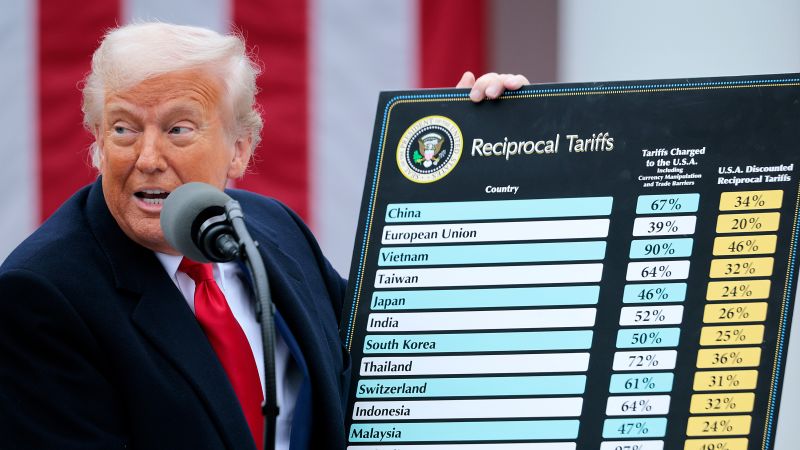On Wednesday, a significant ruling emerged from the U.S. Court of International Trade, a federal court located in Manhattan, which is often deemed low-profile yet wields substantial influence over customs and international trade laws. A three-judge panel ruled to suspend former President Donald Trump’s global tariffs that were implemented under emergency economic powers. This decision specifically impacts his “Liberation Day” tariffs imposed on April 2, alongside other levies imposed earlier against trading partners China, Mexico, and Canada, in efforts to curb the flow of fentanyl into the United States.
The court’s ruling favored a permanent injunction against these tariffs, effectively stopping them before any deals with most trading partners could be established. While the majority of Trump’s tariffs are now on hold, it is important to note that the ruling does not apply to every single levy he instituted. As a response to this legal development, stock futures experienced a notable rise. Dow futures surged nearly 500 points, climbing approximately 1.1%. Broadly speaking, S&P 500 futures increased by 1.4%, while Nasdaq futures saw a 1.6% uptick in after-hours trading, indicating a positive market sentiment following the court’s decision.
This legal battle was initiated by the Liberty Justice Center, a libertarian legal advocacy organization that filed a lawsuit in April. They represented wine seller VOS Selections and four other small businesses that contended they were significantly negatively affected by Trump’s tariffs. On April 2, Trump initiated reciprocal tariffs, imposing severe tariffs on goods from key allies. However, after a week, he opted for a 90-day pause on these tariffs, while universally maintaining a 10% tariff on a wide range of imports.
Trump originally enacted these tariffs without approval from Congress, utilizing the International Emergency Economic Powers Act (IEEPA), which empowers the president to act in response to perceived extraordinary threats. Citing IEEPA, Trump also introduced 20% tariffs on imports from China and levied 25% tariffs on numerous goods from Mexico and Canada, aimed at addressing fentanyl trafficking issues affecting the U.S. However, the plaintiffs asserted that the Trump administration failed to substantiate the existence of a national emergency to justify these actions. They also claimed IEEPA does not grant the President the authority to impose tariffs, and even if it did, it would represent an unconstitutional transfer of Congress’s exclusive power to impose tariffs.
In their ruling, the judges agreed that Trump lacked the authority to declare a national emergency for the purpose of imposing these tariffs. The panel declared, “IEEPA does not authorize any of the worldwide, retaliatory, or trafficking tariff orders,” thereby highlighting that these tariff measures exceeded the authority granted to the President by IEEPA regarding importation control through tariffs. It further emphasized that the trafficking tariffs failed to appropriately address the threats specified in the orders.
The White House did not immediately issue a response to this ruling. Spokesperson Harrison Fields had previously stated that trade deficits with other countries amounted to a “national emergency.” The Justice Department, representing the Trump administration, argued that the matter of tariffs was inherently political and, therefore, outside judicial purview. However, the plaintiffs countered this perspective by highlighting that IEEPA makes no explicit mention of tariffs and consequently, Trump’s invocation of the law was inappropriate.
Ilya Somin, a law professor at George Mason University’s Scalia Law School and co-counsel in the case, commented, “If starting the biggest trade war since the Great Depression based on a law that doesn’t even mention tariffs is not an unconstitutional usurpation of legislative power, I don’t know what is.” Concurrently, twelve Democratic states filed a separate lawsuit in the same court, arguing that the Trump administration illegally imposed tax hikes on Americans through these tariffs. The judgment issued on Wednesday incorporated these tariffs as well, including those targeting fentanyl imports from China, Mexico, and Canada, thus broadening the implications of the ruling.
In conclusion, the U.S. Court of International Trade’s ruling serves as a critical juncture in the political and economic landscape, invalidating a suite of tariffs implemented through emergency powers that have sparked significant contention. As the situation evolves, updates will be provided, shedding light on the ongoing ramifications of this significant legal decision.



